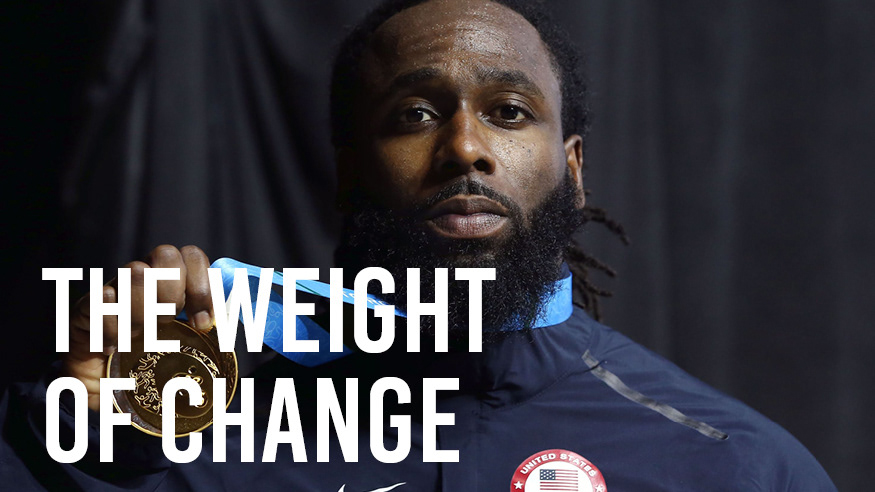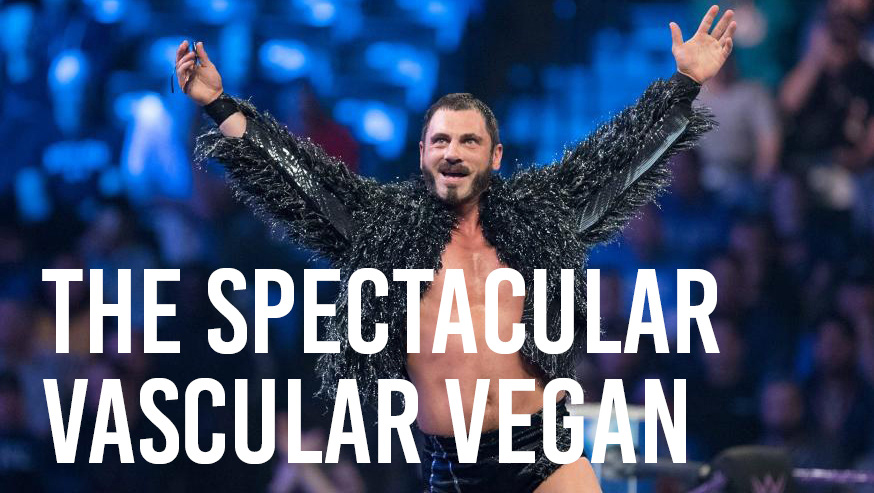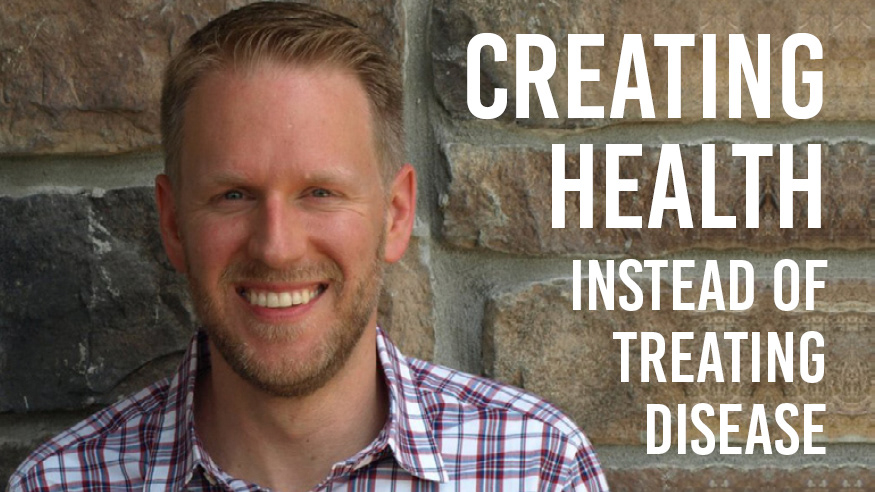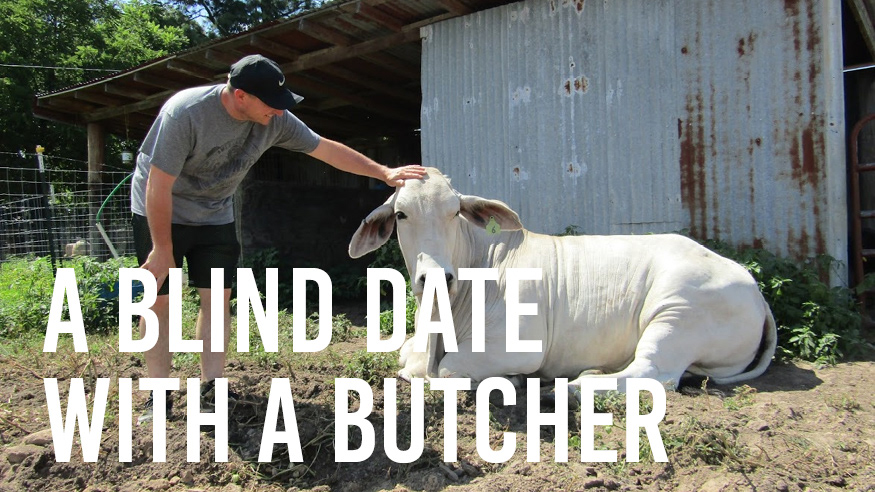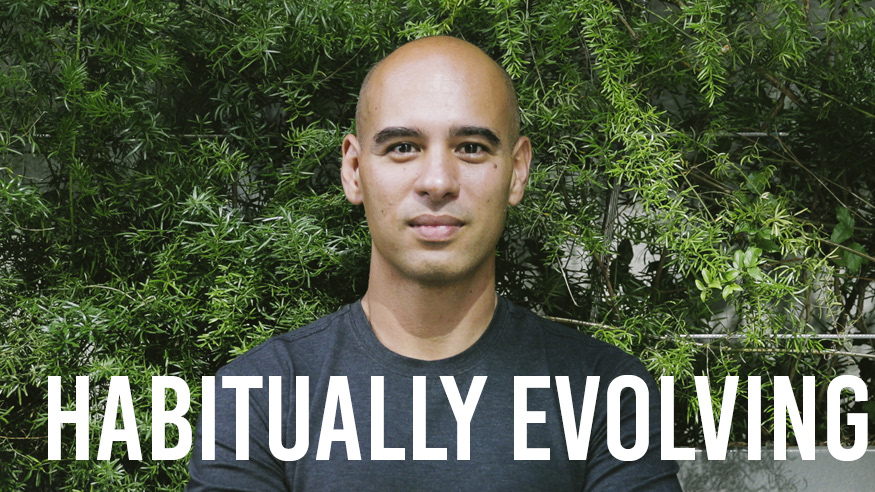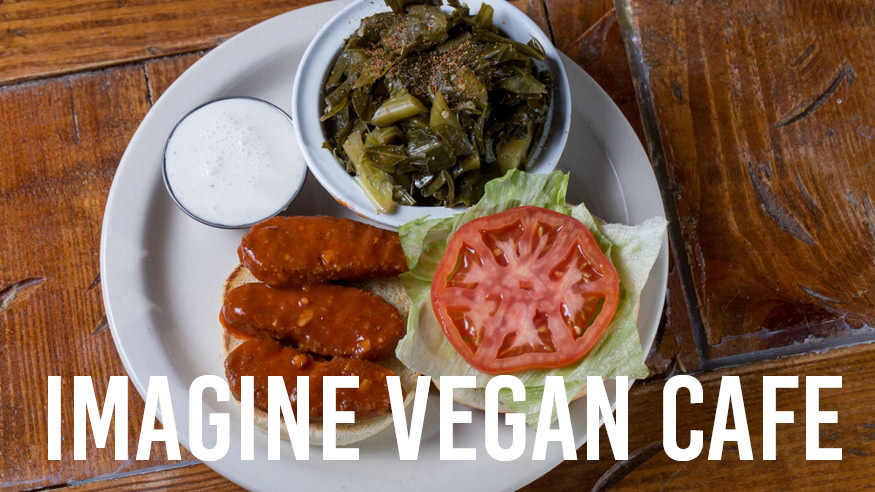Why Professor Charles Camosy Believes Veganism and Christianity Are Compatible
by Clay Garrett
Does the Bible tell us to be vegan? Charles Camosy believes it's a question definitely worth asking ourselves.
Who is Charles Camosy? Charles Camosy, Ph.D., is an Associate Professor of Bioethics at Fordham University in the Bronx, New York. I first became familiar with Camosy’s work after listening to an episode of Victoria Moran’s Main Street Vegan podcast. Until that point, I’d never heard anyone tie veganism and the Bible together. As, like Camosy, I am both Catholic and vegan, I was enthralled and immediately purchased a copy of his book, For Love of Animals: Christian Ethics, Consistent Action; watched several debates between him and the legendary Peter Singer, and sent an email requesting an interview.
Camosy graciously accepted my request, and we had a fun and educational (at least for me) conversation.
From cornfields to the Bronx
Surrounded by cornfields, horses, pigs, chickens, and cows in the tiny farming township of Paris, Wisconsin, Camosy grew up very much connected to rural America. He was also deeply connected to his Catholic faith. As a child, during the summers he would often serve at daily Mass in the country church only a stone’s throw from his home.
Camosy would go on to study the philosophy of religion at the University of Notre Dame. After graduation, he traded the cornfields of Wisconsin for the bustle of the Bronx when he accepted a position teaching theological and social ethics at Fordham University, a Catholic Jesuit institution:
“I like to tell people I went from cornfields the Bronx and had no idea what I was in for. But I definitely think it’s been good for me as a guy from the Midwest to be immersed in a totally new experience.”
Peter Singer is right
As a graduate student at Notre Dame, Camosy actually taught famed vegan activist Peter Singer. Singer’s 1975 book, Animal Liberation: A New Ethics for Our Treatment of Animals is seen by many as a cornerstone of the animal rights movement but, originally, Camosy saw Singer’s work as adversarial to his own beliefs. However, Camosy soon realized that, for his students’ sake he had a responsibility to be fair to Singer’s arguments. Camosy credits being forced to teach Peter Singer as the beginning of his transition to a vegan lifestyle:
“Eventually I became convinced about a number of things, including his arguments on global poverty, but especially about his arguments on animals, animal liberation, and the way we treat animals. By the time I was 25, I was convinced he was right. Finally, by the time I was 30, I was able to follow his prescriptions.”
In turn, Camosy believes many of his arguments have influenced Peter Singer to shift his belief that religion is an enemy of the animal rights movement to seeing religion as more of a necessary ally. Singer and Camosy have built somewhat of a friendship over the last few years, and Singer regularly invites Camosy to debate him at Princeton University. Camosy maintains that Singer has been very generous to him and his work, even going so far as to write letters of recommendation. Camosy and Singer make an odd couple in some ways, but Camosy wrote Peter Singer and Christian Ethics: Beyond Polarization to show just how much overlap exists between the two.
But what about all those animal sacrifices?
Like many, Camosy believes there is a gradual unfolding in the Bible’s Old Testament; revelations were revealed to the Jewish people over time, not all at once. The Jews of the Hebrew Bible learned that God didn’t desire animal sacrifices. So, while there are indeed many animal sacrifices in the early books of the Bible, the prophets pointed the Jews toward something else, a peaceful kingdom:
“God doesn’t desire animal sacrifices. God wants us to live a holy life. And what does a holy life look like? Isaiah, one of the main prophets, says, ‘The wolf and the lamb shall feed together, and the lion shall eat straw like the bullock: and dust shall be the serpent's meat. They shall not hurt nor destroy in all my holy mountain.’ That’s the image Isaiah uses. A peaceful kingdom doesn’t just mean peace between humans.”
Do animals have souls?
While Camosy admits there seems to be no settled position on whether or not animals have souls, he does point out that that Pope Francis was clear that there are animals in the afterlife. Isaiah says there will be animals in Heaven, and Saint Paul alludes to this as well. Furthermore, the highly influential Catholic philosopher Saint Thomas Aquinas believed animals had some version of a soul.
The animal lover–meat-eater paradox
I asked Camosy how most people resolve the paradox of being self-proclaimed animal lovers while simultaneously eating meat (I became vegan to resolve this paradox in my own life). Surprisingly, he pushed back slightly against my premise that it was a paradox. Camosy believes most of us in modern society are so far removed from the process of meat production that being both an animal lover and a meat-eater hardly represents a paradox:
“So many people are disconnected from the process that they don’t consciously realize they are eating an animal. Something is ground up and something is mixed in. They aren’t even really aware of what they are eating or how it got there.”
In today’s world of factory farms, governmental protection, and cheap foods, many well-intentioned animal lovers have to be shown where their food comes from to fully appreciate the paradox they’ve entered into.
In the beginning …
There are several illustrations in Genesis, the Christian origin story, of the type of relationship God intended humans and animals to share. In Genesis 1, God proclaims, “Animals are good,” with no reference to humans — no qualifiers. Camosy refers to the end of Genesis 1 as a “beautiful vegan document.” In that document, God proclaims, “I give you the green plants and the fruits to eat.”
Many Christians interpret the line in Genesis referring to God’s giving humans dominion over animals as a green light to do whatever we want with them. But Camosy points out an often overlooked chronological detail … the dominion piece in Genesis can’t be referring to the domination of animals because, immediately following it, God tells us to eat plants and fruit. So whatever dominion means, it doesn’t mean eating animals:
“If you go into Genesis 2, we learn that God says, ‘It’s not good man should be alone,’ and everyone says, ‘Oh, this is where Eve comes in.’ But, no; read it carefully. God brings the animals to Adam. So, God brought the animals to Adam because it’s not good that man should be alone — not to eat!”
It’s clear in Genesis that we’re to see animals as our companions, not our food. Christians believe they are called to live the way God originally intended, and the intent for Man to live at peace with animals is explicit in Genesis:
“Animals don’t belong to us, they belong to God. So we aren’t at liberty to just do whatever we want to them. We have a responsibility to help animals flourish the way God intended them to flourish.”
Charles Camosy’s website: http://www.charlescamosy.com
For Love of Animals: Christian Ethics, Consistent Action: http://a.co/d/cLnBkRK
